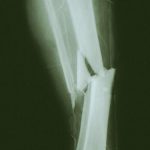
Evaluating a person’s psychological stress can be a good way to gauge their risk of heart and blood vessel disease, new research suggests. And a brief questionnaire could help with the assessment, the study findings showed. “Our study is part of the accumulating evidence that psychological distress is a really important factor in a cardiovascular diagnosis, such as the other health behaviors and risk factors, like physical activity and cholesterol levels, that clinicians monitor,” said co-author Emily Gathright. She is an assistant professor of psychiatry and human behavior at Brown University’s Warren Alpert Medical School, in Providence, R.I. For the study, the team looked at research published within the past five years that included adults without a psychiatric diagnosis who were screened for depression, anxiety, post-traumatic stress disorder, stress or general mental health symptoms, and followed for more than six months. About 58% were women. In all, Gathright and her colleagues analyzed findings from 28 studies that included more than 658,000 patients. Those reporting high levels of psychological distress had a 28% higher risk of heart disease, the investigators found. According to study co-author Carly Goldstein, an assistant professor of psychiatry and human behavior, a brief mental health questionnaire can give clinicians a better idea not only of a patient’s mental health risks, but also their associated risk for heart disease. Based on the results… read on > read on >


















